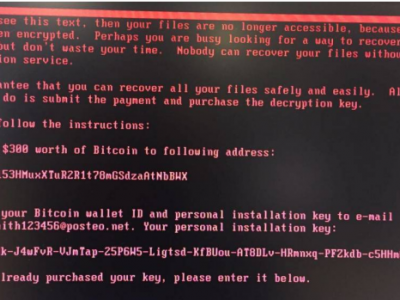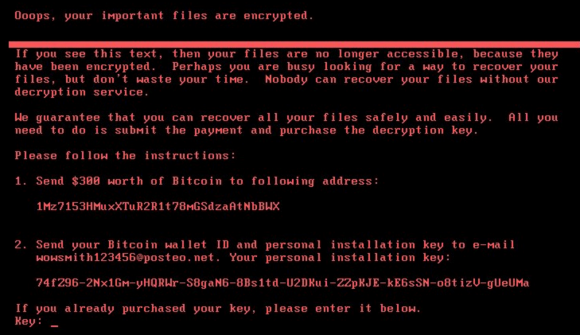Petya Virus
12:46 pm - 28th Jun 2017

A new strain of ransomware dubbed “Petya” is worming its way around the world with alarming speed. The malware is spreading using a vulnerability in Microsoft Windows that the software giant patched in March 2017 — the same bug that was exploited by the recent and prolific WannaCry ransomware strain.

According to multiple news reports, Ukraine appears to be among the hardest hit by Petya. The country’s government, some domestic banks and largest power companies all warned today that they were dealing with fallout from Petya infections.
Danish transport and energy firm Maersk said in a statement on its Web site that “We can confirm that Maersk IT systems are down across multiple sites and business units due to a cyber attack.” In addition, Russian energy giant Rosneft said on Twitter that it was facing a “powerful hacker attack.” However, neither company referenced ransomware or Petya.
Microsoft released a patch for the Eternal Blue exploit in March (MS17-010), but many businesses put off installing the fix. Many of those that procrastinated were hit with the WannaCry ransomware attacks in May. U.S. intelligence agencies assess with medium confidence that WannaCry was the work of North Korean hackers.
Organizations and individuals who have not yet applied the Windows update for the Eternal Blue exploit should patch now. However, there are indications that Petya may have other tricks up its sleeve to spread inside of large networks.
Ransomware encrypts important documents and files on infected computers and then demands a ransom (usually in Bitcoin) for a digital key needed to unlock the files. With most ransomware strains, victims who do not have recent backups of their files are faced with a decision to either pay the ransom or kiss their files goodbye.
Security experts warn that Petya and other ransomware strains will continue to proliferate as long as companies delay patching and fail to develop a robust response plan for dealing with ransomware infestations.